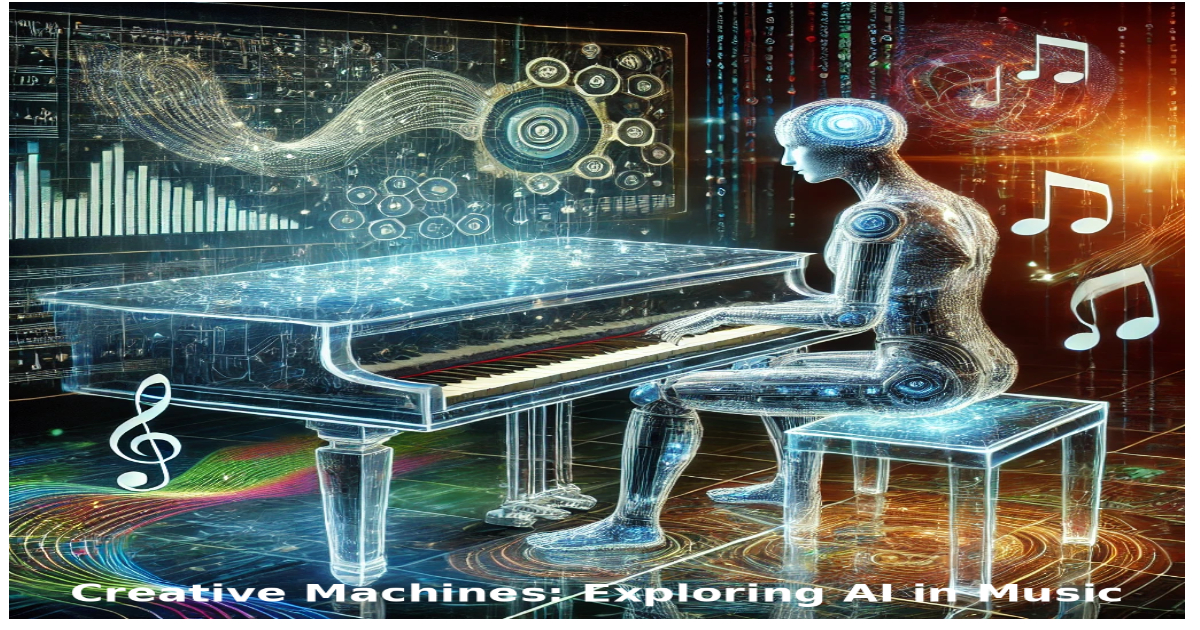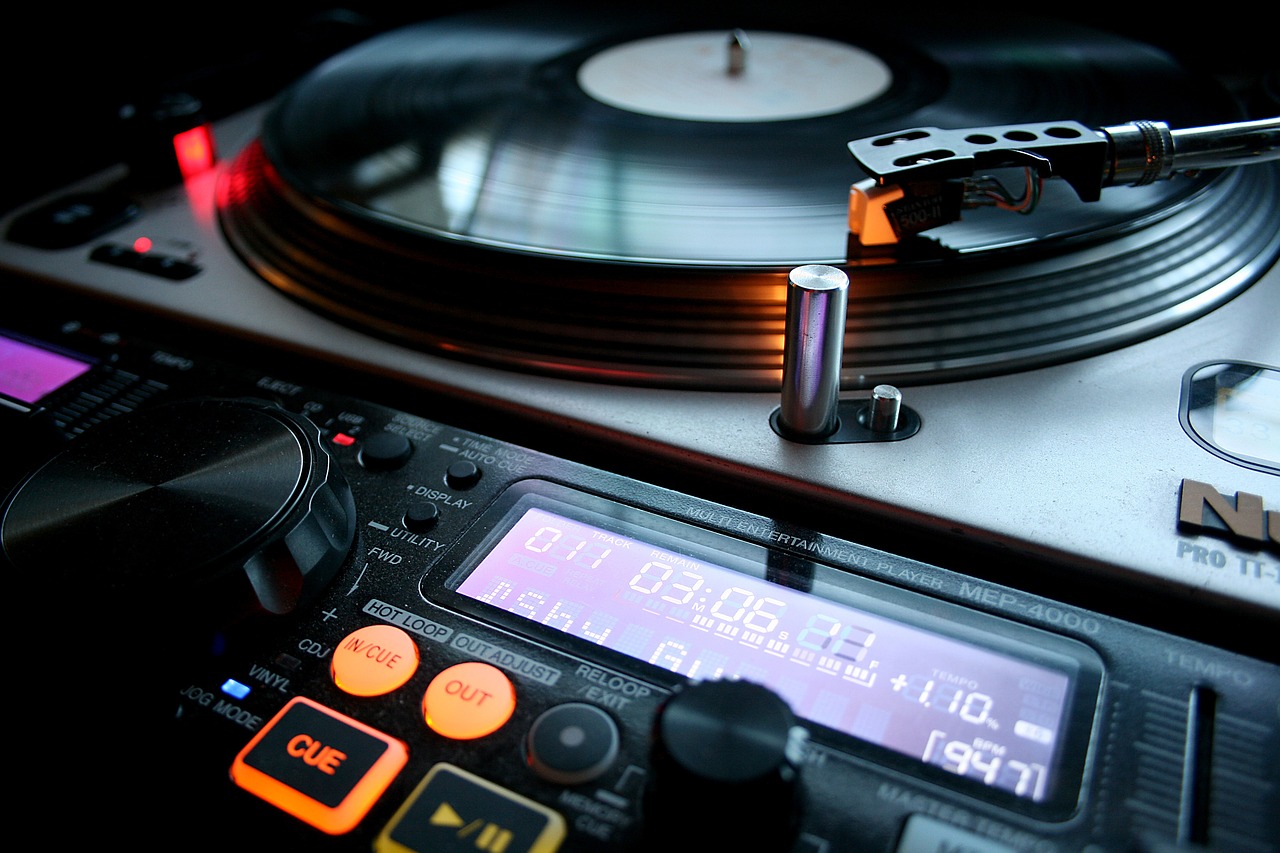Newness
Tech
Technology
AI and Music, AI Artistry, Artificial Intelligence, Creative Machines, Digital Creativity, Future of Music, Here are the tags without hashtags and separated by commas: AI in Music, Music Evolution, Music Innovation, Music Production, Music Technology, Musical AI, Next Gen Music, Smart Music Creation, Tech in Music
Manish sonawane
0 Comments
AI in Music: Exploring the Growth of AI in Music 2024
The integration of artificial intelligence (AI) into music is transforming the creative landscape, introducing new possibilities for composition, collaboration, and production. AI in Music has the ability to analyze, learn, and generate music, propelling its growth and allowing both professionals and amateurs to explore uncharted musical territories. This article delves into the rise of AI in Music and its implications for creativity and the industry at large.

The Emergence of AI in Music
AI’s foray into music began with simpler applications like playlist curation and music recommendations on streaming platforms. Over time, technological advancements in machine learning and neural networks have enabled AI to perform complex tasks, including composing original pieces, emulating specific artists’ styles, and even crafting entirely new genres. Notable tools like OpenAI’s MuseNet and Google’s Magenta showcase the incredible potential of AI in Music to create compositions that resonate with listeners.
How AI is Transforming Music Creation
AI-driven music creation involves training algorithms on vast datasets of compositions to identify patterns in melody, rhythm, harmony, and structure. Once trained, these models can generate music that mirrors human creativity. Key advancements include:
- Original Composition: AI in Music systems can generate soundtracks for films, video games, and advertisements, saving time and costs.
- Artist Collaboration: Musicians can use AI to co-create tracks, blending machine-generated ideas with human creativity.
- Accessibility: Platforms powered by AI in Music democratize music production, allowing individuals without formal training to produce professional-grade compositions.
The Advantages of AI in Music
The integration of AI in Music offers numerous benefits:
- Innovation: AI in Music expands the boundaries of traditional music by introducing novel sounds and structures.
- Efficiency: Automating tasks such as mastering, mixing, and editing accelerates the production process.
- Personalization: AI in Music enables hyper-personalized experiences, curating playlists or composing songs tailored to individual tastes.
- Democratization: Non-musicians can now create music through intuitive AI Music platforms, fostering inclusivity in music creation.

Challenges and Ethical Questions
Despite its promise, the growth of AI in Music raises critical challenges:
- Authorship and Copyright: Who owns the rights to compositions created by AI Music? This question remains a contentious issue in copyright law.
- Authenticity: Skeptics argue that Music lacks the emotional depth and intent of human composers, potentially resulting in music perceived as impersonal.
- Impact on Jobs: As AI Music automates parts of the production process, there are concerns about its effects on traditional roles within the industry.
AI as a Creative Partner
Many artists are embracing Music as a collaborator rather than a competitor. Pioneering musicians like Holly Herndon and Grimes have integrated Music into their creative processes, producing groundbreaking works that blend human ingenuity with computational power. This partnership highlights the potential of hybrid models where human emotion and AI Music’s efficiency coexist harmoniously.
The Future of AI in Music
The future of AI in Music is promising, with potential applications extending far beyond current capabilities. Personalized soundtracks tailored for individual listeners, real-time music generation for virtual environments, and new business models focused on niche genres are just a few possibilities. AI in Music-driven tools are also poised to redefine music education, offering interactive platforms that teach composition and performance skills.

Conclusion
AI Music is not merely a tool for automation; it is a catalyst for innovation and exploration in music. By augmenting human creativity, AI Music is helping redefine what’s possible in the art form. As technology continues to advance, the collaboration between humans and AI Music will shape the evolution of music, ensuring its growth remains vibrant and inclusive. While challenges persist, the fusion of machine intelligence with musical artistry promises a future rich with possibility and innovation.
Read More :-
AI in Everyday Life: The Revolutionary Impact of Tools Like ChatGPT 2025
10 Surprising Ways AI Is Transforming Your Daily Routine
How Character AI is Transforming Movies, Games, and Entertainment
Silicon-Carbon Batteries: Transforming Smartphone Energy with Unmatched Efficiency 2025
The Ultimate 5G Smartphones That Redefined Excellence in 2024
Top Revolutionary Tech Gadgets to Watch in 2025
How AI is Changing Our World: The Future Is Now
Poco C75: दमदार बैटरी और शक्तिशाली प्रोसेसर वाला स्मार्टफोन कीमत सिर्फ इतनी
Realme 14x 5G Launch: 50MP Camera, 120Hz Display, and More Under ₹15,000
iPhone 16 Pro Max vs. Samsung Galaxy S24 Ultra: The Ultimate Camera Showdown of 2024
Silicon-Carbon Batteries: Transforming Smartphone Energy with Unmatched Efficiency 2025
AI in Everyday Life: The Revolutionary Impact of Tools Like ChatGPT 2025
Poco C75: दमदार बैटरी और शक्तिशाली प्रोसेसर वाला स्मार्टफोन कीमत सिर्फ इतनी
Realme 14x 5G Launch: 50MP Camera, 120Hz Display, and More Under ₹15,000
भारत में 2025 में TOP 10 स्मार्टफोन मॉडल जो आपको हैरान कर देंगे!
iPhone 16 Pro Max vs. Samsung Galaxy S24 Ultra: The Ultimate Camera Showdown of 2024

















Post Comment